These days Real Estate is very much an on-line assisted business. As a realtor, you already know how much the business has changed.
So, what is the best laptop for realtors? To answer that question, we need to break down all the different things a realtor business needs to do.
In the distant past, Real Estate was about paperwork, then it increasingly moved to online emails and PDFs and now you are in a new world of videos, virtual walk-throughs, on-the-fly designing and more.
- EDITORs TOP3
- Dell Inspiron 14 5000 Series 14-Inch FHD – EDITOR’s PICK
- Apple MacBook Air – EDITOR’s PICK
- Acer Aspire 5 Slim Laptop – EDITOR’s PICK
- Jumper EZbook X3 Windows 10 Laptop
- Microsoft Surface Pro 7
- Dell Inspiron 11.6″ HD Touchscreen Notebook
- 2020 HP 15 15.6″ HD Touchscreen Premium Laptop
- Apple MacBook Pro (16-inch)
- LG “Gram” Thin & Light Laptop
- Panasonic Toughbook
You already have a Mobile Phone and quite possibly one or more tablets, so the choice of a PC will be very focused on what you can’t do (or at least can’t do well) on a smartphone or on an Apple iPad.
There are also upsides and downsides in some use cases to Tablets, like Samsung, Lenovo, Asus, Acer, Kindle, etc. A tablets for realtors is such a huge topic that we review them in full on our site in another article.
Then you have the split choice between Apple versus Microsoft Windows.
With a Mac, you will get no viruses and simple operation because Apple used a closed system architecture. The downside to that is you will pay more for an ‘equivalent’ Apple product and are at Apple’s mercy about software or hardware upgrades and any options or accessories.
A Windows-based PC is an open system, so you have a huge amount of choice of third party hardware, software, upgrades, options and accessories. The downside is way more complex and watches out for viruses.
So, it’s a case of different Realtor jobs that need different tools – or ‘horses for courses’. The big split is between working in the office and working out on site.
Top 3 Best Laptops for Realtors in 2022
Let’s get going with our top 3 best laptops for real estate agents recommendations:
- Best Overall Model: Acer A515-43-R19L
If you want a laptop for realtors with a big screen that’s fast and inexpensive, check out this Acer. It’s a 15.6 inches Full HD IPS Display and you could buy maybe 3 for the price of one Mac. There’s no touchscreen, it is just a good straightforward laptop from a popular brand. - Great Alternative Model: Apple MacBook Air 13-Inch
If you have the cash, Steve Job’s philosophy is alive and well in this Mac laptop. The user experience is smooth and the design is slim. lightweight and elegant. It will run all day without a recharge and the brand sends a message to your clients. But it ain’t cheap. - Best Hybrid Model: Dell Inspiron Two in One
This 2 in 1 mid-priced touch screen laptop functions as a laptop or tablet, is lightweight, affordable and slim. We like it a lot.
So, that’s our top three Rating laptop for real estate choices. It’s worth saying again that ratings and reviews can never really produce a ‘best’ or ‘top’ because it all depends on what is important to you.
With that in mind, let’s look at our criteria for real estate broker computers.
Laptop for a Real Estate Agent – our buying criteria

If you read alphabet soup PC or Mac Reviews and ratings that just talk about OS, GPUS, AMD, etc. they are frankly all missing the point. No one needs to know what is inside a PC or Mac, what they need to know is what that PC or Mac can do specifically for them.
You (hopefully) don’t buy a car because of the components in the engine, you buy a car because of what the sum total of the car means to you.
Equally, you (hopefully) aren’t going to buy a coupe car if what you need is a pick-up truck. So, let’s extend coupe vs pick up truck that analogy to a laptop for a real estate agent. Put simply, the coupe is like the laptop that is mainly out in the field giving PowerPoint presentations, showing 3D diagrams, playing videos, staying in contact with base etc.
It needs to work Ok back in the office too, but that is not it’s the main role. Then the pick-up truck is the laptop that lives mainly back in the office, creating the content like powerpoints, 3D graphics, videos etc. It needs to work OK out in the field if needed.
Now our buying criteria are more focused on the coupe. This is because we have already said we are focused on reviewing and rating laptops for a laptop for real estate businesses. If you need something that purely sits back in the office, you might well invest in a much more powerful desktop PC or a desktop Apple product.
These like the pickup truck will do a better job of any heavy lifting, in terms of creating content. You just don’t want to take them out on site (or back home to do some preparation for the following day).
So, since we are focused on something like a notebook for realtors, here are our buying criteria:
- Overall size. You want something portable but which has abilities that a Tablet can’t match, so a slim, light model can be preferable
- Screen size. This is actually two subcategories. A big screen can be a good thing if you are presenting to clients and you don’t have a projector. Or a small screen can be better if you are mainly concerned about point one above, which is overall size. So a small laptop isn’t always a good thing.
- Speed. It’s really embarrassing if you are trying to impress a client and your laptop is lagging. No one wants to watch the doughnut of doom
- Reliability.Even worse than going slow is a freeze or crash and you never ever want a virus
- Connectivity. |Does it connect to everything you need it to connect to?
- Battery life. You can’t spend two hours a day finding Starbucks with a charging point, fun though that might be. Think of the expenses claims…
- Looks. You want to send a message to clients about you – does the laptop send the right message?
- Cost. Realtors’ laptops have a hard life sometimes. So, how much do you really want to spend?
- Storage. This is a big topic, so here is a quick rundown of what storage actually means.
So, that’s a quick look via main buying criterias. Now let’s get back to the action.
Best Laptop for Realtors
Right, time to get on with our full review of the best laptop for real estate agents.
Our top ten Realtor’s Laptops in detail
So, “what is a good laptop for realtors?” is a more complex question than it first appears. We’ll return now to our top three and look at them more deeply, then add another 7 model.
We took about 75 hours to produce the full in-depth review below.
1. Dell Inspiron 14 5000 Series 14-Inch FHD Touchscreen
Best hybrid Laptop for Realtors

The Dell is a 2 in 1 model that can be driven from the keyboard or screen (including with a stylus, which you need to buy yourself) if you need to do some drawing – which can be a big plus).
It is mid-priced and comes with Windows 10 and anti-virus but not Microsoft Office. Touch screen laptop functions as a laptop or tablet is lightweight, affordable and slim.
- Does most of the job of both a tablet and a laptop in a single device and at a reasonable price.
- The audio is basic as you would expect and the solid state memory is what it is in terms of capacity. You definitely would not edit a long set of property videos on it if you have an alternative choice. Battery life is not as good as the Mac.
2. Apple MacBook Air (13-inch, 8GB RAM, 256GB Storage)
Best for impressing clients

Ok, let’s be honest. Buying any Apple products is a bit like joining a cult. You either get into the values of the cult or not. If you haven’t been to an Apple store recently, they are becoming more and more like design temples.
As a former cult member myself, on more than one occasion, there’s a lot to love about this Mac. The aluminum bodied MacBook Air looks great, the 13-inch screen looks great and the user interface is smooth. Battery life as you’d expect is outstanding too.
The obvious downsides, however, is the fact you are stuck with buying everything from Apple at whatever price they decide to charge you – and the costs can be hefty.
- It’s a Mac. It’s lovely.
- It’s a Mac. It’s expensive.
3. Acer Aspire 5 Slim Laptop (A515-43-R19L)
Best for Windows 10 compatibility

The Acer Aspire Windows PC is a very decent product which we like a lot – but it will not make your heart sing. What immediately strikes you is the big screen – a whopping 15 .6 inches and the nicely backlit keyboard.
That’s a lot of visual impact for a very inexpensive laptop that’s nearly a third the price of the MacBook Air. However, don’t forget you need to add in more third party applications software for the Acer.
There’s no touchscreen, and the keyboard is just basic despite the lighting. Up to 7.5 hours battery life is claimed, but heavy usage means the realistic figure is quite a lot less less than that, especially running presentations with the screen brightened up. The RAM is a bit stingy but you cant really complain at the price and there are cost options to increase it.
All up it weighs nearly 4 pounds so not exactly lightweight.
- Cheap and a nice big screen.
- Only 4GB of RAM, and 128GB M.2 SSD. Heavier than some models.
4. Jumper EZbook X3 Windows 10 Laptop
Best for low cost

If you really do want cheap then Jumper might not be a brand you have heard of but this laptop still will do the job. Even less than the Acer, for a small amount of money you get Windows 10 a 13.3” HD screen 6GB RAM and 5G WiFi. So, not bad at all on paper.
It’s aluminium case makes it look a little like a MacBook Air, except for hundreds of dollars less. RAM is a bit limited and it’s not the fastest machine on the planet but it does an OK job.
- Cheap but looks OK and works OK.
- You will probably need more storage at some point.
5. Microsoft Surface Pro 7
Best for content creation

Another hybrid laptop / tablet – like PC, this time with a whopping 16GB RAM (although you can get less and pay less). The whole attraction of the Surface for a Realtor is you can type, write, touch and draw. We’ve chosen the high end spec which comes at a price but is very fast and very slick.
Connectivity is great too including the new USB-C standard which has some cool features like its very small, reversible, and can in future support HDMI, VGA and DisplayPort. If the key operation isn’t up to a specific job, you can also plug in an external keyboard.
All in all a well designed package for a Realtor.
- Tablet like plus Laptop – like operation.
- The higher spec models are pricey.
6. Dell Inspiron 11.6″ HD Touchscreen Notebook
Best for compact size

If notebooks are your thing, then this second Dell model on our list sits a little more towards a tablet than a laptop – in fact it isn’t really easy to categorise. Entry is through a touch screen like a Tablet but the double sided hardware gives more laptop-like capabilities and look.
The fact you can plug in an external keyboard via USB and have HDMI and Windows !0 puts it in the laptop camp.
It’s easy for a realtor to schlep around houses and condos and is great for small scale presentations. Not a device for heavy content creation however, unless you are very patient.
- Compac and great for showing pre-made presentations and content. The HDMI port immediately puts it ahead of many Tablets if you need to connect to a TV or projector.
- Not especially good at creating content.
7. 2020 HP 15 15.6″ HD Touchscreen Premium Laptop
Best touch screen

We’re back running with the big dogs now with our first HP Laptop on the list. This HP is another touch screen model that comes with Windows 10 home and a decent 8 GB of RAM.
Connectivity is good with 2 USBs and 1 HDMI. You’ll notice SKYPE calls are especially good, as there is both a decent camera and very reasonable speakers, considering the size.
- Good performance, and better than average audio.
- The common issue with mid-priced models: Not as good as some, not as cheap as others.
8. Apple MacBook Pro (16-inch)
Best for big screen impact

Our second Apple product is the much bigger brother to the MacBook Air – the MacBook Pro. It’s physically a bigger and heavier than the equaliavent Air and one thing this allows is a big 16-inch screen. What can we say about the screen other than it is stunning, really jaw-dropping?
If you are selling luxury condos, this is what you need, not a budget Asus, Acre or Lenovo. We’ve selected the higher spec version with a massive 1 TB of storage and i9 processor – why not, if you really are going to spend big bucks. It has UHD (Ultra high definition) support too but that’s a bit of luxury you probably won’t need.
We could go on more about the spec and the features but that’s all missing the point. If you are trying to impress high-end clients, you need a high-end machine and this is it.
- It’s just stunning visually and the sound is pretty good too.
- Huge costs.
9. LG “Gram” Thin & Light Laptop – 15.6 Inch Scree
Best rival to Apple

Now, if you have the bucks but aren’t a Steve Jobs cult member, it’s well worth considering this most excellent LG Gram model. Again we have a big lovely screen – a nice touchscreen that is smooth and responsive – plenty of horsepowers and lightweight design.
You can get an even bigger screen but this is plenty big. Battery life with the Gram is very good indeed as is connectivity – this is another USB-C supporting model. Fingerprint ID is supported, which is handy for those realtors who – like the rest of us – can forget passwords (very embarrassing in front of a client).
The name Gram is there for a reason too, this is a super lightweight model.
- Big beautiful screen, lightweight and capable.
- Not as beautiful as the MacBook Pro (but close).
10. Panasonic Toughbook
Best for building sites

Our 10th and the final reviewed and rated model is a specialized niche market product – the Panasonic Toughbook. More of a HumVee than a coupe really. Some realtors aren’t selling fancy condos, they are out on-site during construction or renovation, or are selling commercial or industrial properties.
So, If you need something that doesn’t mind being bumped or a bit of dust or moisture and is easy to carry around without a case, then the ToughBook range is for you.
- Like the name says, it’s tough. It will likely survive longer than anything else on this list.
- The Toughbook is pretty basic as a PC and isn’t intended to impress celebrity luxury condo clients.
Storage 101
You’ll agree the whole area of Laptop storage is a bit of a swamp. Let’s try to break it down a bit – this will be simplified and can’t cover everything but should be enough to be going on with, when choosing what is the best Laptop for you.
Your Realtor laptop needs storage for several different things:
- To store the operating system on (OS) which is either likely to be Apple or Windows 10
- To store any applications you run (Powerpoint, Word, Skype, etc. )
- To store any files, video audio or stills you want to keep.
- To cache (temporarily store) web pages, video, audio and stills that you want to immediately access.
So, that’s a very simplified view of why you need storage, now lets’ look at how it is allocated or configured
1. Onboard ROM. Read-Only Memory is for storing things you will always need. ROM can be actual chips or RAM (Random Access Memory) that is software ‘locked’ so it can’t be deleted. Most Realtors can live their lives like most of the rest of us, not worrying about ROM.
2. RAM for storing everything you need on the device. In the past laptops used a mixture of actual Solid State (SS) chip-based RAM and physical rotating hard disc drives (HHD and usually called the ‘C’ drive). These days it’s mostly solid-state, which is somewhat less efficient in terms of storage but faster to access, doesn’t need cleaning up (defragging) and won’t ‘crash’ (which discs do if the head reading the data from the disc stops working for any reason).
3. Direct Attached Storage (DAS). This is stuff like memory sticks, external ram, etc. which is connected one-on-one with a laptop.
4. Network Attached Storage (NAS). When your laptop is connected to your Realtor office network (if you are a Realtor who has that kind of IT stuff) this is shared common physical storage, located ‘on-premises’ that can be accessed by any user. There are some fancy cousins of the NAS, like a SAN or a FAN but that’s too much detail to go into here. NAS storage used to be very popular but is now giving way to the cloud.
5. Cloud-based storage. Cloud is a fancy marketing name for you or your company renting storage that you access over the internet. Just like ‘Tofu’ sounds tastier than ‘Bean Curd’ right? A Chromebook style laptop depends very heavily on cloud storage – in fact it isn’t much use in some respects without it. Cloud storage is great in that it is unlimited (for a price) and you don’t have to do maintenance or management yourself. The downsides of Cloud come when your connection to the Cloud is slow or unreliable. Then you are in a world of hurt.
So, you are out meeting a client but you can’t get a decent signal. It happens right? Especially in some rural areas. Not great if you are working on a big real estate deal that is in a rural area like the Ozarks, Blue Ridge Mountains etc.
Then everything that you really need, slows down on your Chromebook or even stops outright. That really sucks. So, if you are showing a big client around, especially in a rural location, and relying on cloud connectivity for any device (not just a laptop or chromebook), be sure you actually have a good signal.
That’s one big drawback to Chromebooks for realtors which we talk about in another article on our site.
Best Laptop for Realtor
So that’s our reviews and ratings of our top ten best laptops for Real Estate Agents. We looked at a widely different range of products and in truth, there (as usual) is not a ‘best’.
You can’t do an “Apples for Apples” comparison for example if your heart is with Apple and against Windows. They are just different propositions.
We looked at a couple of specialist models too – one notebook and one ruggedized model. Again a ‘rating’ or ‘best’ comparison between these isn’t very useful.
- Best Overall Model: Acer A515-43-R19L
- Great Alternative Model: Apple MacBook Air 13-Inch
- Best Hybrid Model: Dell Inspiron Two in One
So, what do you think? Please let us know in the comments section below. Thanks for reading.

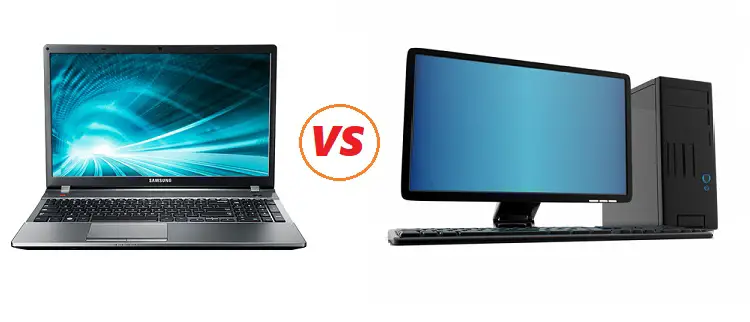
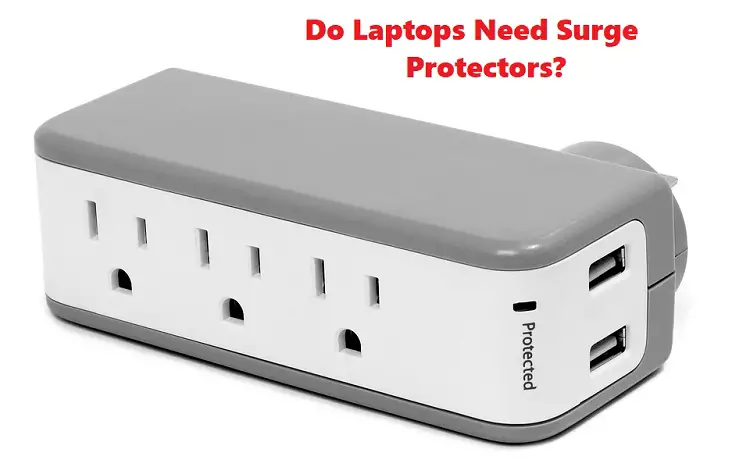
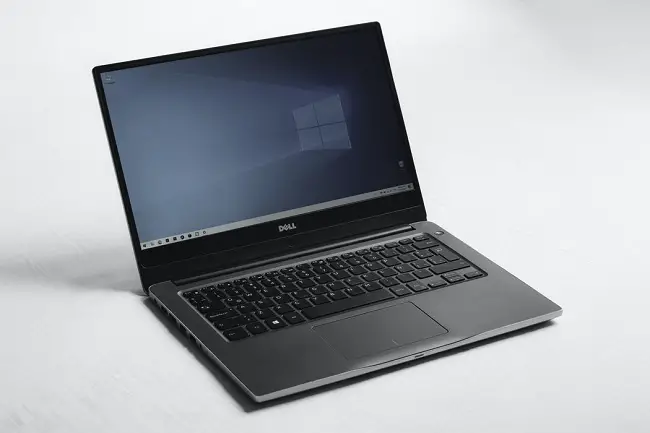
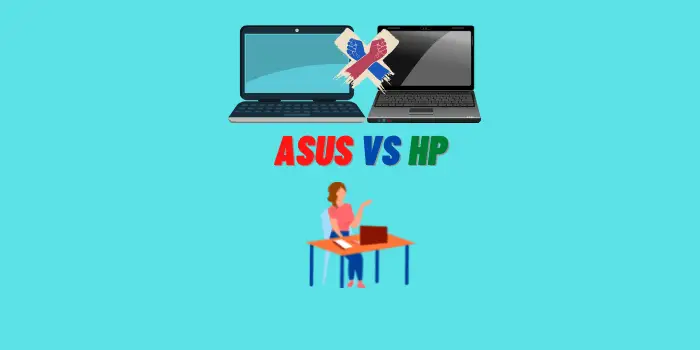
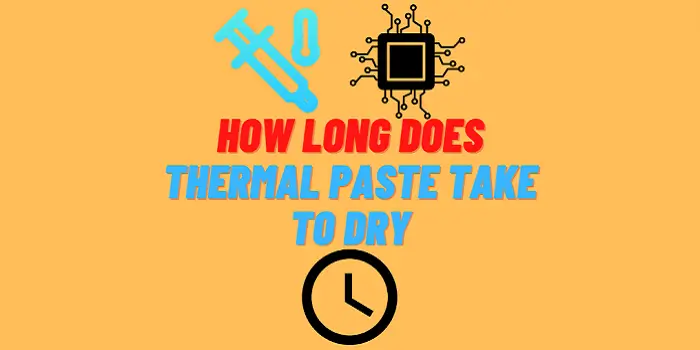

All this storage stuff is confusing, I mean what’s the real meaning of “DDR3L SDRAM”
So, now let’s break down some of the acronyms. DDR3L SDRAM means that the device is Double Data Rate 3 Low voltage Synchronous Dynamic Read-Only Memory. In English that all means the latest version of storage that doesn’t use as much battery as version2. Simple 😉
How about 4K and UHD TV? I heard some Apple and other high-end PCs now support it. Won’t that make Real Estate presentations videos etc look better than HD.
The old 4K/ UHD question is a good one. Yes, Apple for example now is talking about UHD support on their specs (including on the models we review here) and yes, in theory, UHD should look better than HD – because it is Ultra High Definition, not just High definition, right?
Well, no not really. We don’t want to turn this into a TV review but Realtors like everyone else deserve to have some hype removed. Here goes.
Consumer electronics Marketing departments love buzzwords because yummy lovely mildly dishonest buzzwords help to sell consumer electronics. I’m speaking from experience here. It doesn’t matter if the buzzword doesn’t convey much (or even any) actual tangible benefit to an individual end consumer, it just needs to sound exciting and convincing. Did you buy a “3D” TV? Or an “HD Ready” TV? How did that work out?
4K means 4xHD resolution, so HD pixel count is 1920 x 1080 and if you multiply that by 4 you get 3840 x 2160 pixels. So, more pixels and therefore better – right? Yes in theory but mostly no in practice. If you have more pixels you can show more fine detail. If you show more fine detail then your picture is sharper and more accurate. The problem is the viewer (or in this case the client looking around that new duplex) won’t be able to see that extra detail unless the screen is really big and they are sitting really close.
Think about when you take an eye test. The very fine detail at the bottom of the Snellen chart is hard to read, right? If you got up out of your chair and walked across the optician’s test room, now you can see it really clearly.
It’s exactly the same with 4K. On smaller screen sizes (like a laptop, which a Realtor will likely be using) you need to be really close to see any difference (I mean inches away in some cases). That’s not how you want a client viewing your presentation.
At normal viewing distances, you’d need at least a 60-inch screen connected to your laptop to make a really clear difference. Unless that’s what you are planning, forget about 4K.
What about USB-C – can you explain more about what that is and why ic might be important?
OK let’s dig a bit deeper into USB-C and the related topics of USB PD (Power Delivery) and USB 3.1
USB means Universal Serial Bus and it’s an industry standard for connecting Laptops and many other devices. We all know what a pain it is when you leave the home without the right cable, or how some things that you’d think should connect to each other easily, in fact, don’t. We’ve already seen that as well as being small and reversible (you can flip it in the socket), USB- C also can support a variety of different connectivity protocols using what are called “alternate modes,” which allows you to be able to use various adapters that can output VGA, HDMI, or DisplayPort.
The USB PD specification is closely linked with USB -C. Currently, a conventional USB 2.0 connection only provides up to 2.5 watts of power. That is better than nothing but just about enough to charge your smartphone or tablet, but not much more… The latest USB PD specification supported by USB-C increases this power delivery to a relatively massive 100 watts. It’s bi-directional, so a device can either be a sender or receiver of that power. As a busy realtor, with a bunch of devices you might be hauling around that’s going to be cool right?
What is also cool and practical is that all this lovely new power can be transferred at the same time as the device is transmitting data across the same connection. So, send and power at the same time. This kind of 100-watt power delivery could even let you charge a laptop, which typically requires about 60 watts.
So, some of this is about future capabilities but well worth considering.